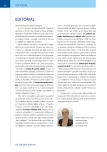-
Medical journals
- Career
LAPAROSCOPIC URETERAL REIMPLANTATION – VIDEO
Authors: Milan Hora; Petr Stránský; Viktor Eret; Kristýna Procházková; Tomáš Pitra; Jiří Kouba; Olga Dolejšová
Authors‘ workplace: Urologická klinika LF UK a FN Plzeň
Published in: Ces Urol 2016; 20(2): 97-99
Category: Video
Overview
Introduction:
Reimplantation of the ureter is relatively rare surgery and even in paediatric urology. The standard procedure is open access. Expanding experience with laparoscopy including robotically assisted allows minimally invasive performance. We present our first experience with laparoscopic reimplantation.Material:
From 3/2014 to 6/2015 laparoscopic reimplantation was performed four times. Twice as a part of laparoscopic diverticulectomy of urinary bladder (once along with photoselective vaporization of the prostate, once with radical prostatectomy), once for a lesion of the ureter in a 43 year old woman two months after open hysterectomy for myomas and once in a 34 year old man with stenosis of the distal ureter. This video presents a case of ureteral injury after hysterectomy.Video case report:
Laparoscopic approach in Trendelenburg position is performed using 4 ports. Peritoneum is opened paravesically and the right ureter is dissected to the bladder wall. The ureter is released from the stenosis. An unsuccessful attempt at probing the ureter by flexible cystoscope is made. The ureter is cut above the stenosis. The bladder is opened and the ureter is reimplanted using polyglactin 4-0 stitches without antirefux mechanism. Prior to the completion of the anastomosis the „double loop“ ureteral stent is placed using a hydrophilic wire. At the end of the procedure the drain is placed into the Pouch of Douglas. Operation time was 150 minutes, blood loss was 150 ml. The nephrostomy was removed on the fourth postoperative day, urinary catheter was removed on the sixth postoperative day and the stent after 4 weeks. There is no hydronephrosis on ultrasonography two years after surgery, functional scintigraphy (99mTc MAG3) is imperceptibly improving (split function 28 % to 30 %).Conclusion:
Laparoscopic reimplantation is a less invasive alternative to open surgery in selected cases.Key words:
Ureter, trauma, laparoscopy, reimplantation.
Sources
1. Dvořáček J. Megaureters in Children. Acta Univ. Carol. Monographia CXXXVI. Praha: Univerzita Karlova 1990.
2. Hanuš T, Jarolím L, Petřík R, Matras B. Iatrogenní léze močovodu u žen. Rozh Chir 1997; 76(6): 302–305.
3. Schraml J, Knespl J. Laparoskopická poranění močovodu. Ces Urol 1998; 2(5): 33–35.
4. Pokuta P, Jarolím L, Dvořáček J, Hanuš T. Poranění močovodu ošetřená ve Všeobecné fakultní nemocnici v Praze za posledních 5 let. Urologická klinika 1. LF UK a VFN, Praha. Rozh Chir 1999; 78(12): 627–632.
5. Pešl M, Šafařík L, Pavlík I, et al. Kazuistika nemocné s oboustranným iatrogenním poraněním močovodů. Urol. praxi 2005; 3 : 122–123.
6. Hanuš T, Novák K, et al. Nemoci močovodů. Praha: Galén 2008 : 105–127.
7. Chocholatý M, Schmidt M, Hanek P, Jarolím L. Etiologie, diagnostika a terapie iatrogenních poranění močovodu při otevřených a laparoskopických operacích. Endoskopie 2009; 18(3): 98–102.
8. Peremský Z, Král J, Bočan M, Navrátil P, Broďák M. Iatrogenní poranění močovodu, břišní katastrofa z pohledu urologa. Urol. praxi 2011; 12(6): 373–375.
9. Hlaváčová J, Jambura J, Kouba J, et al. Časná chirurgická léčba poranění ureterů. Ces Urol 2011; 15(3): 158–166.
10. Szewczyk J, Krhut J, Fikoczek H, Kalusková I. Iatrogenní léze močovodu diagnostikována po měsíci, Ces Urol 2015; 19(3): 216–219.
11. Hora M, Eret V, Stránský P, Ürge T, Ferda J, Hes O. Jednoportová laparoskopická (LESS-laparo-endoscopic single-site surgery) nefrektomie. Ces Urol 2015; 19(1): 83–85.
Labels
Paediatric urologist Nephrology Urology
Article was published inCzech Urology

2016 Issue 2-
All articles in this issue
- LAPAROSCOPIC URETERAL REIMPLANTATION – VIDEO
- LAPAROSCOPIC RADICAL CYSTECTOMY – VIDEO 2015
- ROBOT ASSISTED PERFORMANCES IN ANDROLOGY
- NEPHROBLASTOMA – CURRENT EVALUATION AND TREATMENT
- ARTEFICIAL SOMATO-CNS-AUTONOMIC MICTURITION REFLEX – EXPERIMENTAL VERIFICATION
- EARLY POSTOPERATIVE COMPLICATIONS AFTER RADICAL CYSTECTOMY WITH ORTHOTOPIC BLADDER SUBSTITUTION
- APLICATION OF DETOUR EXTRA-ANATOMIC STENT AFTER DESINTEGRATION LEFT URETEROINTESTINAL ANASTOMOSIS
- THE CONSEQUENCES OF PENILE SUBCUTANEOUS APPLICATIONS OF THE FOREIGN MATERIALS
- PROFESSOR TOMÁŠ HANUŠ, M.D., DrSc., CELEBRATES HIS BIRTHDAY
- CONGRESS REPORT – 4TH CZECH VIDEO-TUTORIAL 2016
- THE 2ND UROLOGY-NEUROLOGY SYMPOSIUM IN OSTRAVA
- A REPORT FROM THE 37TH WORKING DAYS OF PAEDIATRIC NEPHROLOGY AND THE 27TH ANNUAL MEETING OF PAEDIATRIC UROLOGISTS
- KNOU 2016 – COMPREHENSIVE NEWS IN ONCOLOGICAL UROLOGY
- PROF. MICHAL HORŇÁK, M.D., DRSC. A LEADING SLOVAK UROLOGIST, PASSED AWAY
- KEY UROLOGICAL SURGICAL PROCEDURES IN THE CZECH REPUBLIC IN PERIOD 2009–2014
- BLACK ADENOMA OF THE ADRENAL GLAND
- Czech Urology
- Journal archive
- Current issue
- Online only
- About the journal
Most read in this issue- THE CONSEQUENCES OF PENILE SUBCUTANEOUS APPLICATIONS OF THE FOREIGN MATERIALS
- NEPHROBLASTOMA – CURRENT EVALUATION AND TREATMENT
- BLACK ADENOMA OF THE ADRENAL GLAND
- KEY UROLOGICAL SURGICAL PROCEDURES IN THE CZECH REPUBLIC IN PERIOD 2009–2014
Login#ADS_BOTTOM_SCRIPTS#Forgotten passwordEnter the email address that you registered with. We will send you instructions on how to set a new password.
- Career

